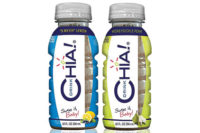The American Heart Association (AHA) reports that the prevalence and control of traditional risk factors of heart disease, such as hypertension, tobacco use, high cholesterol, diabetes and obesity, remain an issue for many Americans, according to the AHA’s Circulation journal’s article “Heart Disease and Stroke Statistics – 2011 Update” published in December 2010.
Although death rates from cardiovascular disease have declined, the AHA reports that based on 2007 mortality rate data, more than 2,200 Americans die of cardiovascular disease each day, which is an average of one death every 39 seconds.
To continue the decrease in cardiovascular-related deaths, the AHA established a new set of impact goals that aim, “By 2020, to improve the cardiovascular health of all Americans by 20 percent, while reducing deaths from cardiovascular disease and stroke by 20 percent,” the association stated in Circulation.
One of the central tenets of the goal is the concept of “cardiovascular health” that is measured by seven health behaviors and factors, which include a healthy dietary intake consistent with dietary approaches to stop hypertension-like eating pattern and health factors such as healthy cholesterol, blood pressure and blood glucose levels.
The association just began tracking its goals this year, but the article states that the prevalence of ideal levels of health behaviors and health factors is higher in U.S. children than in U.S. adults. However, the AHA says that more than 90 percent of U.S. children meet one or none of the five healthy dietary components as defined by its 2020 Impact Goals. Among U.S. adults, the statistics vary from 0.2 percent of adults who meet the healthy diet score to 72 percent who meet the smoking metric, which means they have never smoked or are current non-smokers.
For some heart health-conscious consumers, functional food and beverages provide preventative options to help lower cardiovascular disease risk. Ram Chaudhari, senior executive vice president and chief scientific officer for Fortitech, Schenectady, N.Y., says more people are turning to preventative options rather than cures. He cautions that beverage-makers must respond with balanced formulations.
“A ‘balanced’ way means proper dose, proper quality of the nutrients and proper format,” Chaudhari says. “This is where functional foods and beverages will come in the picture more and more, especially for baby boomers.”
Formulation options
Lifeway Foods, Morton Grove, Ill., introduced a line of BioKefir shots with a variety of functional benefits, such as heart health. In addition to probiotic cultures, the cardiovascular shot is available in Blackberry and Black Cherry varieties that contain grape concentrate, pomegranate, apple and green tea extracts for free radical fighting, the company says.
In February, national drug store chain Walgreens launched a private label heart health formulated orange juice. The A Healthy Start to Your Day Pulp-Free Orange Juice contains potassium, folate, calcium,
B vitamins and vitamins A, C and E. The Deerfield, Ill.-based company says the 450 mg. of potassium in each 8-ounce serving helps reduce the risk of high blood pressure and stroke. The juice also contains 20 percent of the recommended daily value of vitamins B6 and B12, which actively promote heart health, and
15 percent of folate, which is added for the possibility of helping maintain a healthy cardiovascular system.
Fortitech, which manufactures custom nutrient premixes for beverage-makers, offers a lengthy list of ingredients for heart health-positioned beverages, including plant sterols, phytosterols, omega-3 fatty acids and soy isoflavones, Chaudhari says. In addition, the company offers dietary fiber, antioxidants, coenzyme Q-10 (CoQ10), chromium and B complex vitamins, including vitamins B6, B12 and folic acid.
Chaudhari recommends that beverage-makers formulate with the ingredients that best suit their applications, such as dairy-based beverages and fortified juices and teas.
“All these nutrients are available, but we want to make sure that the quality of those ingredients meets the quality of that specific application,” Chaudhari says. “Whereby people can use a scientifically validated dose, whatever that may be, to add and to make those products acceptable with respect to taste, texture, shelf-life and important attributes.”
Consumers’ top priority remains taste, says Heather Biehl, manager of Health Ingredient Technology & Solutions (H.I.T.S.) for Wild Flavors Inc., Erlanger, Ky.
“Consumers are certainly more aware of the fact that diet and functional ingredients can play a key role in maintaining health and preventing illness,” Biehl says. “The most important thing to consider when developing a fortified product is taste. In some cases, using a functional ingredient at an efficacious level is limited by the taste profile of the product. Consumers want functional foods and beverages, but they also want them to taste good.”
The company focuses on incorporating heart health ingredients, such as polyphenols and phytosterols, in efficacious amounts that also taste good, she says. The company recommends its ingredients for use in dairy-based drinks, juices, ready-to-drink teas and shots that aim for benefits such as maintaining healthy cholesterol ratios, strengthening the cardiac muscle, maintaining healthy blood pressure levels and providing cardiac energy, Biehl says.
Wild’s portfolio includes a variety of polyphenol ingredients, which are antioxidants that can reduce LDL — also known as “bad” cholesterol — compounds in the bloodstream, Biehl explains. Wild offers green tea, grapeseed extract, resveratrol, carotenoids, pomegranate extract, vitamins A, C and E and other fruit and herbal extracts.
Plant-based benefits
Cholesterol reduction is a key concern for many consumers who are heart health-conscious. Phytosterols, which also are known as plant sterols, offer a plant-based option for formulators targeting cholesterol reduction.
“The nice thing for consumers now is that they can utilize the food and beverage options either before they go on cholesterol-lowering medications to see if that will work for them, or in combination with cholesterol-lowering medication,” explains Pam Stauffer, global marketing programs and communications manager for Cargill Health & Nutrition, Minneapolis. “People are very aware of cholesterol and many are looking for natural solutions to manage it.”
Cargill offers plant sterols under the CoroWise banner, which have been clinically shown to reduce LDL cholesterol. The ingredients have been featured in a variety of products, including enhanced milk beverages and juices, such as Minute Maid Premium Heart Wise 100 percent orange juice from The Coca-Cola Co. Minute Maid Heart Wise is enhanced with 1 gram of plant sterols in each 8-ounce serving. The brand recommends two 8-ounce servings each day with meals to reduce LDL cholesterol in people with normal to borderline high total cholesterol.
Through a partnership with BASF, Wild Flavors’ H.I.T.S. group offers phytosterols, which have been shown in clinical trials to maintain healthy blood cholesterol levels, Biehl says.
BASF, Florham Park, N.J., and its subsidiary Cognis offer the Heart Choice line of plant sterols. The plant-based ingredients were incorporated by Danone Canada into Danacol, a drinkable yogurt. Launched in February, each 80-ml. serving of Danacol provides 50 percent of the daily amount of plant sterols shown to help reduce cholesterol in adults, the company says.
In December, the U.S. Food and Drug Administration (FDA) released a proposed rule on labeling of phytosterols and risk of coronary artery disease that proposed a new health claim that would include products eaten as a snack, explains J.J. Mathieu, technical service representative for ADM, Decatur, Ill. The ruling opens new possibilities for healthy beverages containing sterols that often are not consumed as part of a meal, but rather as a snack on its own, Mathieu says.
ADM offers the line of CardioAid plant sterols that are available in a range of forms for beverage-makers. Suitable for use in smoothies and other high-viscosity products, ADM’s CardioAid-XF is a non-esterified phytosterol product that has been micronized for applications where fine texture is critical, Mathieu explains. CardioAid-S is an esterified phytosterol product designed for vegetable oil-based applications, but also performs well in beverage systems that contain protein, he says. ADM also offers CardioAid-SWD, which is a water-dispersible esterified phytosterol product suited for dairy and other neutral pH beverage products. CardioAid-SWD also can be formulated in ready-to-drink and instant beverages, ADM says.
Mathieu notes an additional study found similar cholesterol- lowering performance between a first-generation statin drug and a diet that includes a combination of plant sterols and cholesterol-lowering foods, such as soy protein, viscous fibers and almonds.
“This opens some interesting opportunities for beverages that would combine a series of functional ingredients to further enhance the cholesterol-lowering properties of phytosterols,” Mathieu says.
In addition to its CoroWise line of plant sterols, Cargill also offers Barliv barley betafiber. A soluble fiber, Barliv has been clinically shown to lower cholesterol and is authorized for an FDA health claim for reducing the risk of heart disease, the company says. The fiber is suitable for formulation of clear beverages, Stauffer says.
“We promote Barliv as a ‘simple source of heart and body wellness’ because Barliv does have broader benefits beyond just heart health, though the current FDA health claim is solely around heart health and cholesterol reduction,” she says.
Emerging research suggests Barliv barley betafiber also has the potential for delivering other health benefits including maintenance of healthy blood glucose levels and possibly helping to decrease feelings of hunger between meals, Cargill says. More research is needed to confirm these benefits, it says.
Suitable for formulation in juice and smoothie beverages, Stratum Nutrition, Saint Charles, Mo., offers Artinia, a vegetarian generally recognized as safe (GRAS)-certified fiber. Artinia has been shown to reduce oxidized LDL cholesterol, which when present within the artery wall triggers a series of inflammatory events resulting in the formation of fatty streaks in the artery tissue, says Joseph L. Evans, manager of pharmacology at Stratum Nutrition.
Blood flow benefits
Consumers’ understanding of the components of cardiovascular health has expanded past the traditional concerns.
“What I think is happening now is there is a search going on for the next generation beyond cholesterol and antioxidants,” says Stephen Moon, chief executive officer of U.K.-based Provexis. “Cholesterol beverages have got maybe 30 years of history now, and quite a strong bank of science behind them. More recently, antioxidant-type beverages have been seen as something which may help with cardiovascular disease.”
Provexis partnered with DSM, Parsippany, N.J., to commercialize its Fruitflow ingredient. Fruitflow is derived from tomatoes and is a scientifically validated ingredient that contributes to normal platelet function by keeping blood platelets “smooth,” DSM says. Blood platelets become “spiky” and more prone to clotting because of stress, smoking, obesity and high cholesterol, the company says. The ingredient’s acute effect takes place within one and a half hours of consumption and lasts for 12 to 18 hours, it says. Fruitflow has been certified GRAS for use in yogurt drinks, fruit juices and fruit-flavored drinks.
Provexis and DSM are continuing their collaboration with the development of an ingredient targeting blood glucose management, Moon says. Blood glucose management is important for people with diabetes and metabolic syndrome, he says. The collaboration is specifically targeting U.S. beverage applications and is projected to launch next year, he says.
The company also is working on an ingredient targeted to cardiovascular inflammation, he says. Provexis has begun human trials of the ingredient and hopes to have the product available to the market by 2013, Moon says.
In addition to omega-3 fatty acids, CoQ10 and vitamins B, D and E, DSM also offers resVida, a pure source of resveratrol. DSM says a recent human study showed that resVida was readily absorbed and contributes to a healthy blood flow.
Cyvex Nutrition, Irvine, Calif., offers BioVin and BioVin 20 that are different concentrations of the same whole grape extract, which provide wide-ranging polyphenol activity and antioxidant defense, says Katherine Bond, director of business development for the company. It also offers Euro Black Currant, which is a natural source of vitamins and minerals standardized for greater than 25 percent anthocyanins, Bond says. Both of the ingredients available from Cyvex Nutrition are soluble and can be incorporated into beverage formulations, she says.
Bioenergy Life Science highlights its Bioenergy Ribose ingredient for inclusion in heart health products. The Minneapolis-based company says ribose provides the cardiac energy needed to maintain normal heart function, increases cardiac efficiency and lowers stress during exercising, and maintains healthy energy levels in the heart and muscles. Ribose is naturally produced by the body; in times of stress, the need is greater than its supply to satisfy the loss of energy from the body’s cells, the company says. BI









